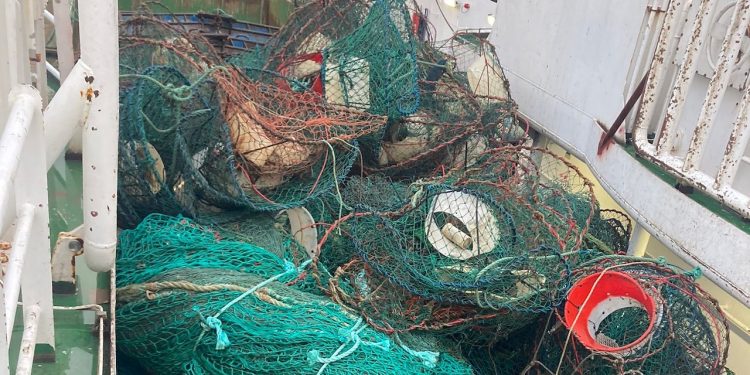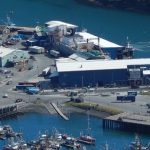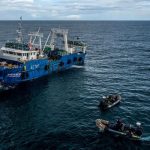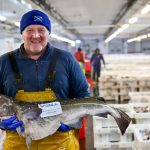Crab pots from the Barents Sea caught in the trawl gear of Deutsche Fischfang-Union (DFFU) trawler Lodairo have ended up being recycled in Germany.
Lodairo’s cache of scrap crab pots was put ashore when the trawler docked in Cuxhaven to offload its trip’s frozen production, and operating company DFFU covered the dispsal costs.
‘This is not the first time our vessels have picked up large waste items at sea this year,’ said fleet manager Vilhelm Thór Harðarson.
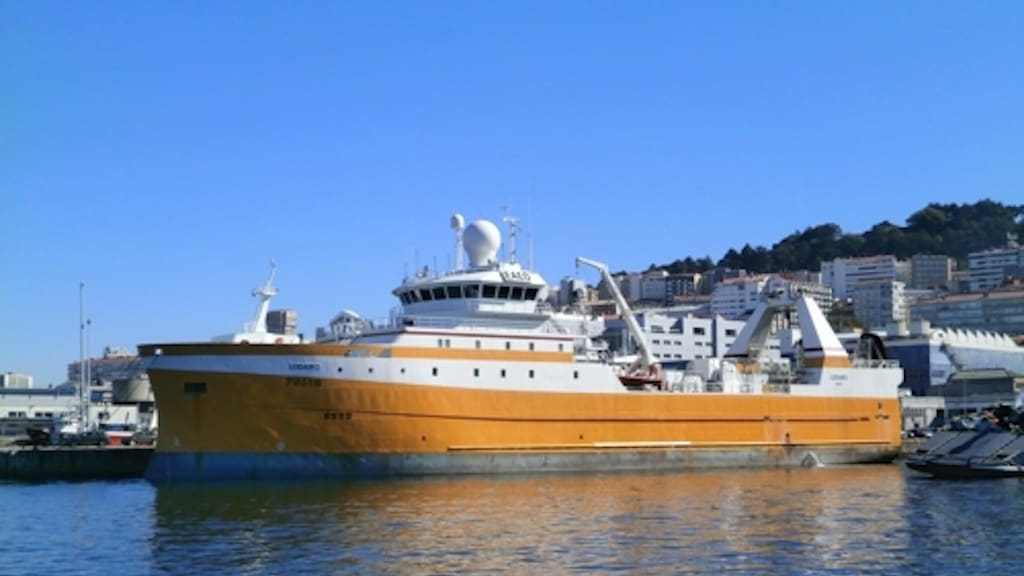
‘Several of our vessels have picked up snow crab pots on their trawls during fishing trips in the Barents Sea. This is not a new challenge for vessels fishing in these areas. Significant amounts of snow crab pots have been abandoned in the Barents Sea over the past few years. The Norwegian Directorate of Fisheries carries out an annual gear retrieval programme, and about 1200 and 2400 abandoned snow crab pots were retrieved in the Barents Sea in 2019 and 2020, respectively.’
He added that its not only crab pots that the trawlers picked up. In May this year French trawler Emeraude had a rusty Lada car on the deck, picked up while towing in the Norwegian EEZ. How the car came to be at the bottom of the sea is unknown, but DFFU, which services Emeraude, covered the cost of the car’s disposal ashore.
‘Our vessels regularly pick up waste from the sea during fishing trips. We don’t see it as a burden but an opportunity to make the sea and its environment cleaner by returning the waste to land and paying for its disposal,’ Vilhelm Thór Harðarson said.
‘We are aware of our responsibility as a company, and it is not only about bringing the waste to shore but also about reducing the consumption and production of waste materials. We are convinced that it is in our best interests to keep the ocean clean and contribute to the continued utilisation of its resources for current and future generations. We want to be part of the solution, not the problem.’
He commented that costs of recycling this waste can build up and become significant over time.
‘The fishing companies that receive these unwanted items in their nets are, in effect, recycling and paying for other people’s waste,’ he said.
‘Bringing large waste items to shore and their safe disposal is an inevitable byproduct of fisheries, and the responsible disposal of waste from the sea is the shared responsibility of all companies in the industry.’

